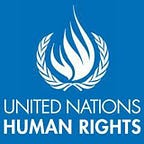Human rights and data can help build back better
On World Statistics Day, UN Human Rights Chief of Methodology, Education and Training Francesca Marotta explains how a human rights approach to data can rebuild public confidence.
By Francesca Marotta
The observance of World Statistics Day on 20 October happens when public trust in data and statistics is being weakened by the speed and reach of misinformation and disinformation. Whether produced by national statistical offices or by other actors, restoring trust in data and statistics should be an utmost priority not just for statisticians or data scientists but also for human rights advocates. Human rights standards and principles, grounded in law, can guide implementation of needed improvements in data collection and disaggregation that can also help improve the quality, relevance, and use of data and statistics.
The work of UN Human Rights on human rights indicators seeks to make available relevant, robust, and internationally comparable indicators on progress in advancement (as well as lags) in human rights enjoyment by all. The UN’s guidance note on Human Rights-Based Approach to Data (HRBAD) demonstrates how data can be produced following international human rights and statistical standards while putting people at the center. This work draws attention to human rights and their practical and normative contributions to ensuring meaningful participation, especially by vulnerable and at-risk groups, in all data life cycle stages.
These steps need to happen to improve visibility around groups left behind and reinforce equality and non-discrimination.
HRBAD highlights the nexus between human rights standards and data-specific ethical and professional principles, particularly the Fundamental Principles of Official Statistics. It espouses six key principles: participation, self-identification, data disaggregation, privacy, transparency, and accountability that national statistical systems need to operationalize. And through HRBAD, the statistical community can present access to meaningful statistical information as both a right and a public good.
In Kenya, for example, society’s ambition to leave no one behind found its way to the National Population and Housing Census 2019. As a result, persons who are intersex, persons with albinism, indigenous peoples, and stateless population were counted for the first time in the Census. Some members of these groups have said that by being counted, they also start count for society. With support from development partners such as the European Union, UN Human Rights provides technical assistance and promotes exchanges on good practices such as this, which concretely operationalizes HRBAD as an instrument for increasing trust in data. Responding to the 2030 Agenda’s call to “leave no one behind,” UN Human Rights has supported such efforts in Albania, Kenya, Kosovo, Liberia, Mexico, Palestine, Philippines, Uganda, and it is underway in other countries.
On World Statistics Day 2020, UN Human Rights reaffirms its commitment to strengthening institutional linkages and collaboration between National Human Rights Institutions (NHRIs), National Statistical Offices (NSOs), and national statistical systems, to make human rights count for everyone.
Watch a video explaining the role of data in helping rebuild public confidence in government processes, below.
